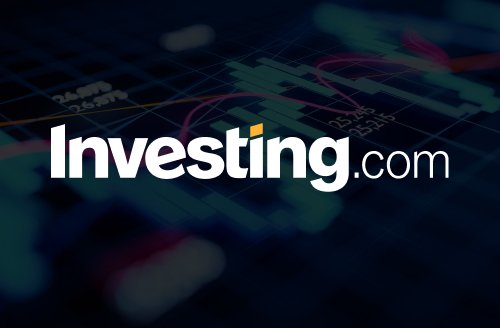In the UK, the earnings season slowly gets into gear, with updates from the likes of Barratt Redrow (LON:), easyJet (LON:) and Burberry (LON:). The first two updates will provide an interesting comparison with numbers from Vistry and Jet2 last week, with the latter failing to avoid the trapdoor of giving uncertain guidance and visibility of earnings ahead of the key summer season, a mistake which easyJet is likely to avoid.
Meanwhile, the “Burberry Forward” strategy will be under the spotlight in what has been a promising start to the new regime, propelling the shares higher by 24% so far this year, although work remains to be done given the 40% decline over the last two years.
The hovered around the flatline at the open, although the most recent record high remains within touching distance. The resilience and attraction of the premier index have become an increasing focus over the course of the last few months as investors seek more stable investment environments, and the FTSE 100 has added 9.5% so far this year amid the volatility seen at many other global exchanges.
The latest price advance gave some support to Fresnillo (LON:), while the defiant economic news from China underpinned gains for Standard Chartered (LON:) and Prudential (LON:), in part offset by some further weakness in WPP (LON:), which is struggling to escape the doom loop which has wiped 50% off its share price this year alone.
Meanwhile, Trump’s tariff threats show no signs of abating, with some more out-of-hours developments already weighing on ahead of today’s open.
Inadvertently or otherwise, the President is testing the market’s patience. At a time when investors had seemingly brushed aside the likelihood of the baseline of tariffs settling at 10%, the new pronouncements suggest a level of between 15% and 20% being the norm, with additionally punitive numbers on the likes of Canada at 35% adding to the uncertainty.
The so-called “TACO” trade will therefore be tested again, with markets drifting in the US on Friday and futures currently suggesting a similar fall today. In addition, as the new 1 August extension approaches, nerves are likely to jangle. In the meantime, the main indices remain close to record highs, with gains in the year to date of 4.3%, 6.4% and 6.6% for the , , and , respectively.
The week also heralds the onset of the latest earnings season in earnest, with banks in particular focus. The likes of Citigroup (NYSE:), JPMorgan Chase (NYSE:), Wells Fargo (NYSE:), Bank of America (NYSE:) and Goldman Sachs (NYSE:) will report, with the health of the consumer and the current attitude to dealmaking at the top of investors’ agendas. Netflix (NASDAQ:) will also provide an update later in the week, coming against high expectations which have resulted in a 39% rise in the share price so far this year, and a spike of 87% over the last 12 months.
More broadly, there is an expectation for growth of almost 5% in earnings over the last quarter, with emphasis also on the outlook and guidance comments, which were largely missing last time around as corporates declined to gauge the immediate effect of tariffs on their businesses.
Equally, it should become more apparent whether any enforced price increases have been passed on to customers, which would confirm the inflationary effects of the tariffs that some had feared and which have prevented the Federal Reserve, thus far, from making any premature further .
Asian markets were mixed to lower, also apparently showing limited reaction to the latest weekend tariff developments. Indeed, China reported a trade surplus of almost $27 billion with the US in June, a rise of 48% which defied the particular attention that has been passed its way from the White House, although there are likely more hurdles to come.




